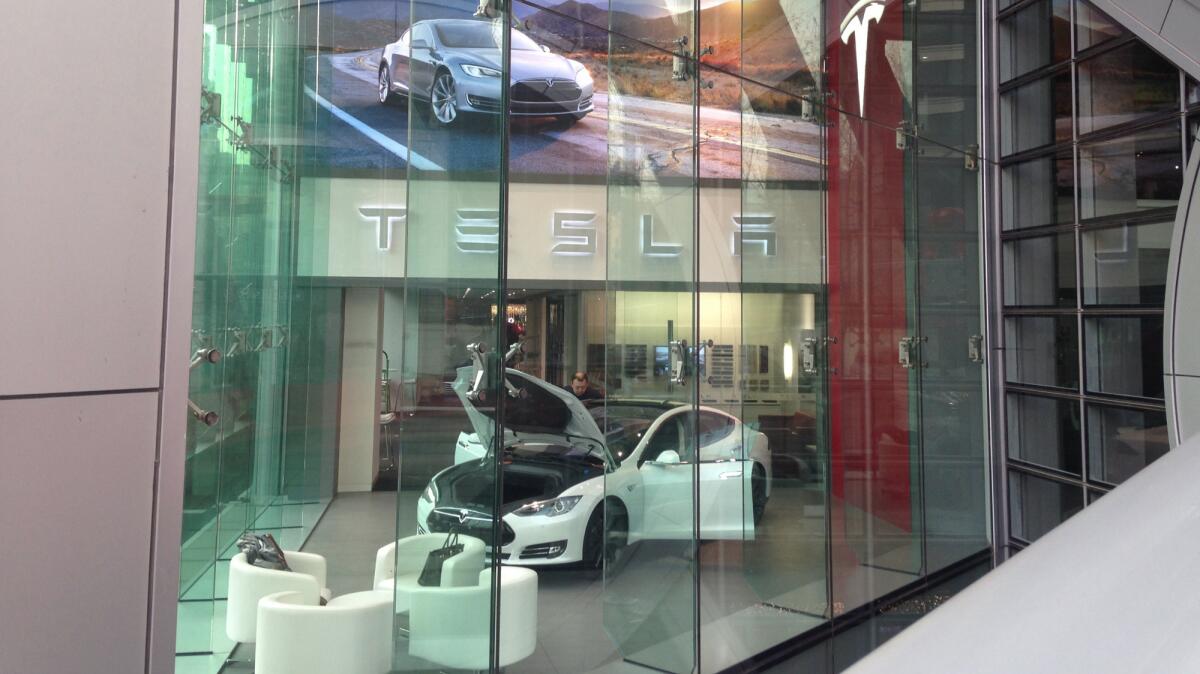Another Tesla Autopilot crash, this time in China

Reporting from San Francisco — Nobody was killed or even injured. But a minor accident involving a Tesla Model S running on Autopilot in China is again raising questions about exactly how the feature works.
The electric car company said Wednesday that it is investigating the Aug. 2 incident. The driver’s Tesla sideswiped a Volkswagen that was parked halfway in the lane of a busy Beijing highway. The company said Autopilot was engaged and the driver was not holding the steering wheel.
But the driver, Luo Zhen, claimed he was misled by Tesla. He told the Reuters news agency that Tesla salespeople described Autopilot as a “self-driving” system. On a test drive, he said “the demonstrator took his hands off the steering wheel and took his feet off the accelerator and the brake.”
Tesla, based in Palo Alto, noted that dashboard warnings instruct drivers to keep hands on the wheel even with Autopilot on.
“As clearly communicated to the driver in the vehicle, Autosteer [a function of Autopilot] is an assist feature that requires the driver to keep his hands on the steering wheel at all times, to always maintain control and responsibility for the vehicle and to be prepared to take over at any time,” a Tesla spokeswoman said.
The spokeswoman added that Tesla makes clear that Autopilot requires the driver to remain engaged and does not describe it as an autonomous self-driving system.
However, the Reuters report from China noted that Tesla’s China website uses the term “zidong jiashi” several times, “which is most literally translated to mean ‘self-driving.’ It is also the term for airplane autopilot, leaving room for confusion among consumers.”
See the most-read stories in Business this hour >>
The latest mishap comes in the wake of a fatal crash in Florida in May, when a Tesla running on Autopilot crashed into a big rig, killing the driver. The crash raised questions not only about Autopilot technology, but also about how its limitations are or aren’t being communicated to drivers.
Tesla cited statistics that indicate Tesla cars are involved in far fewer crashes per miles driven than the average motor vehicle.
The National Highway Traffic Safety Administration is investigating the Florida crash as it develops a strategy for regulating — or not regulating — semiautonomous vehicles.
The agency’s director, Mark Rosenfeld, said in July that self-driving cars hold great promise for safety improvements and that “no one incident will derail the Department of Transportation and NHTSA from its mission to improve safety on the roads by pursuing new life-saving technologies.”
MORE FROM BUSINESS
Meet two pennies worth about $1 million
Stocks mostly flat in early trading
‘Pokemon Go’ maker dreams of video games played on contact lenses







